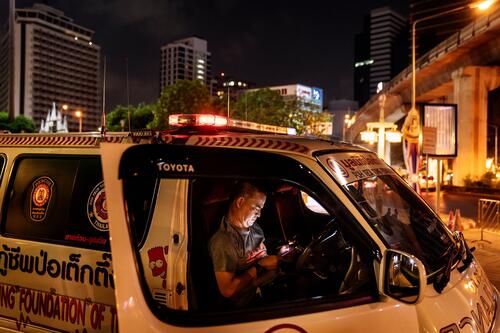Inequality and Exhaust Fill the Air of Thailand’s Dangerous Roads

Inequality and Exhaust Fill the Air of Thailand's Dangerous Roads
Hannah Beech’s New York Times article reports that the blatant ignoring of traffic laws has led to so many fatalities and death in Thailand, a country notorious for having overall poor road safety. On paper, the legislation is there. According to the World Health Organization’s 2018 Global Status Report on Road Safety, Thailand when compared to America has a more stringent drink-driving law. For the Thai general population, the blood alcohol content (BAC) should be under or no more than 0.05 g/dl for the general population. For young drivers, the BAC should be under or no more than 0.02 g/dl. Thailand does legally mandate helmet wearing for motorists. As for speeding, Thailand does not have laws limiting speeding on urban roads to be at or under 50 km/h (31 mph). In a metropolitan city like Bangkok with over eight million people, that just spells imminent disaster. As with the case with many developing nations, enforcement of laws isn’t always sufficient.
When dealing with the traffic police, walking away scot free is easy: just bribe them it seems. Earning only $600 a month, traffic officers aren’t paid enough not to be in a position to accept bribes. Converting that to Thai Baht comes out to around 19,000 Baht. The dollar amount may not sound like much to Americans, but living standards in Southeast Asia overall are much cheaper. Still, I wonder what the average cost of living in Bangkok is for locals. The life of a traffic officer is definitely not peaches and roses. How can one stand being outside in Thailand’s year round humid climate while breathing in toxic exhaust fumes from all the vehicles on the road? The police have been scapegoated as the ones to blame for all of the fatalities, but the police can’t build better, safer roads. The police can’t enact tougher legislation.
Beech also reports on the possible influence of Thailand’s ‘sabai sabai’ mindset. Roughly translating to living carefreely or relaxingly, this could explain the lax nature of traffic law enforcement. However, what this doesn’t account for are the elites who have immunity from prosecution. The wealthy would be the ones most likely to have the funds to bribe traffic officers. In an infamous 2012 case, heir to Thai Red Bull Vorayuth Yoovidhaya hit and killed a police officer while drunk driving. Thai authorities at the time did not press charges against Yoovidhaya who fled Thailand in 2017. Apparently, the case is serious enough to even get Interpol involved in helping locate and bring him back to Thailand. While we don’t know whether Yoovidhaya’s family bribed officials to give leniency, Thai people must still see his status as providing a social shield that few enjoy. Sadly, this story has doppelgangers all over the world. Those with connections can skirt their way around the law and have people who will protect them from falling. At least in the English news media, what hasn’t been reported are the voices of the families of victims of traffic fatalities.
Electronic Sources
Comments
Peter,
When you said “sadly this situation has doppelgangers aroud the world”, I could not help but think of the case of Vietnam, where rule-bending is also quite rampant. In many ways, you could substitute Thai for Vietnamese in this article and it would not miss a beat. I suppose this leads to a deeper question. What does this reveal about political authority. In Vietnam, it’s common to blame these kinds of problems on the legacy of communism. But Thailand has a history of strong anti-communism. Some would like to blame the legacy of colonialism. But again, Thailand is the one country never colonized. So what is the source?
Pages